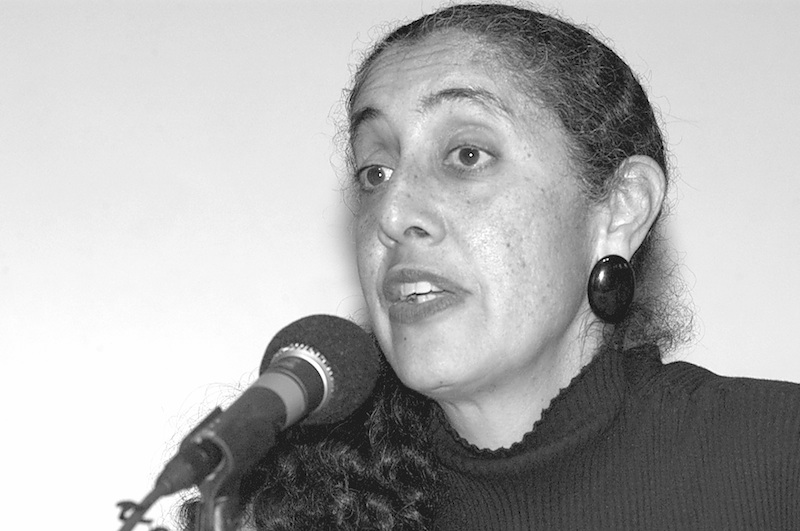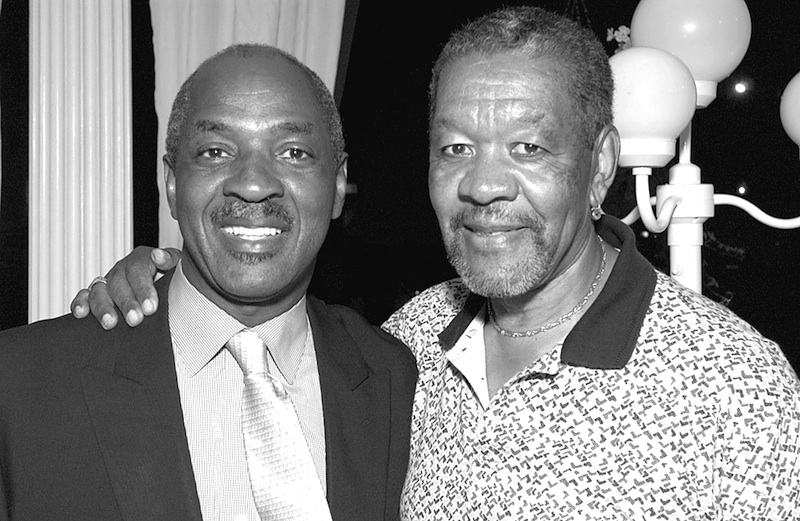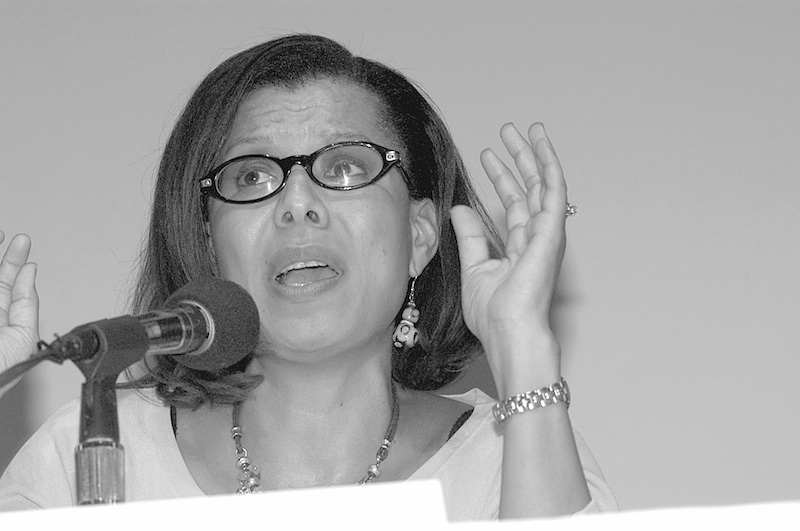It was a shoulder-to-shoulder crowd at the Old Whaling Church on Wednesday, integrated by age, race and Island geography. With whispers that a hundred more were waiting outside, they filled the hall, charged with the anticipation of hearing the charismatic new voice of the Democratic Party, United States Senatorial candidate from Illinois, Barack Obama, and listening as a panel of luminaries offered their views on Brown vs. Board of Education: Mission Accomplished?
It was a question meant to be raised rather than answered.
Marking the 50th anniversary of the Supreme Court ruling which desegregated schools and repudiated the doctrine of separate but equal, the panel, presented by the Harvard University W.E.B. DuBois Institute for African and African American Research and the Charles Hamilton Houston Institute for Race and Justice, made a clear distinction between theory and practice.
Linked by past or current Harvard affiliations, they spoke forcefully and spontaneously, often reinforcing each other’s messages: It is both the best and worst of times; expectations were raised that have not been met; and where do we go from here.
Abigail Thernstrom, senior fellow at the Manhattan Institute and member of the United States Commission on Civil Rights, coauthor with Stephan Thernstrom of No Excuses: Closing the Racial Gap in Learning, asserted, “It’s time to get angry.”
Using statistics to reinforce her point, she spoke of “a heartbreaking gap” between races. “Schools are not providing what disadvantaged students need. We can do better, but it’s going to take radical reconstruction.” The crowd responded with enthusiasm when she declared, “These are not somebody else’s kids...they are the future of America.”
Moderator Charles J. Ogletree Jr. moved across the stage questioning, prodding and encouraging the panel. Georgetown University professor of law Sheryll Cashin spoke of the ruthless competition to succeed among the advantaged. Harvard professor of economics Caroline Hoxby stressed making the school, rather than the students, accountable for failures. Harvard professor of law Lani Guiner (the first black woman professor to be tenured) state, “Race is a means for masking class. We use the language of race to avoid what’s happening,” adding, “We need to learn to talk about race and class in the same sentence, or we will be here 50 years from now talking about the same question.”
The dynamic program of nearly two hours was regularly interrupted by applause, but none was more resounding than when host Henry Louis Gates Jr. introduced Illinois state senator Barack Obama with the announcement, “My candidate for President in the year 2012,” and the crowd rose to its feet and the mood shifted into a high, optimistic gear.
Senator Obama, looking relaxed and informal in a dark blazer, polo shirt and tan slacks, acknowledged his former professor, Charles Ogletree, as “the only one who could have gotten me here,” and explained why he hadn’t intended to speak at any length —his six and three-year-old daughters were waiting.
As evidence of the changing relations among the races, he noted that he, born in Hawaii, the son of a black father from Kenya and a white mother from Kansas, is a candidate for the United State Senate, and —looking around at the people crowded into the wooden pews —that all the black families there indicated “that we can afford to rent a place here.”
Maintaining his casual demeanor, the senator described the street scene on the south side of Chicago, “where the quality of life for poor blacks is relatively unchanged.” He stressed that although expectations were set higher after the Brown ruling, the law has always been an insufficient tool for initiating progress, and “does not take the broad steps need to deal with the wholesale degradation of races.”
Recognizing the need for a political majority motivated his political career, he said, claiming he does not feel the burden of race. “There’s nothing can’t do if I put my mind to it.”
“Where do we go from here,” he asked, warning, “If we deal with race in isolation, to the exclusion of jobs or the health crisis, we’ll lose. We need to break out of the either/or mentality.”
Both the culture of poverty and under-resourced schools require equitable financing, family support and “getting rid of the anti-intellectualism in black households.”
As an aside, he added, “Of course a lot of anti-intellectualism trickles down from the White House,” and the room erupted in hoots and applause.
Referring to an “empathy deficit,” Senator Obama said the nation collectively has not lived up to the common set of ideals put forward by the Rev. Dr. Martin Luther King. “Democrats have an obligation to consider that common set of values that bind us together.” He quoted Dr. King: “Although the arc of the human universe is long, it bends toward justice,” then added, “But it doesn’t bend by itself,” as the crowd offered a standing ovation.
The program ended with questions from the audience, most of which were directed at what specific steps are needed to rectify racial inequalities. Prof. Hoxby stressed the need to excel in science and math. Dr. Thernstrom charged the schools with the responsibility to become proactive. Prof. Cashin called for grassroots mobilization. Professor Guiner, in response to a question on voter registration, informed the audience that the right to vote ins not a national right, but it is instead set by states, and pointed to the need for a constitutional amendment.
As the crowd slowly dispersed, one stylishly dressed woman offered a summation: There were no real surprises, but hearing the issues and the architecture of racism articulated by the country’s leading legal, economic, and academic authorities was in itself an enlightening experience.











Comments
Comment policy »